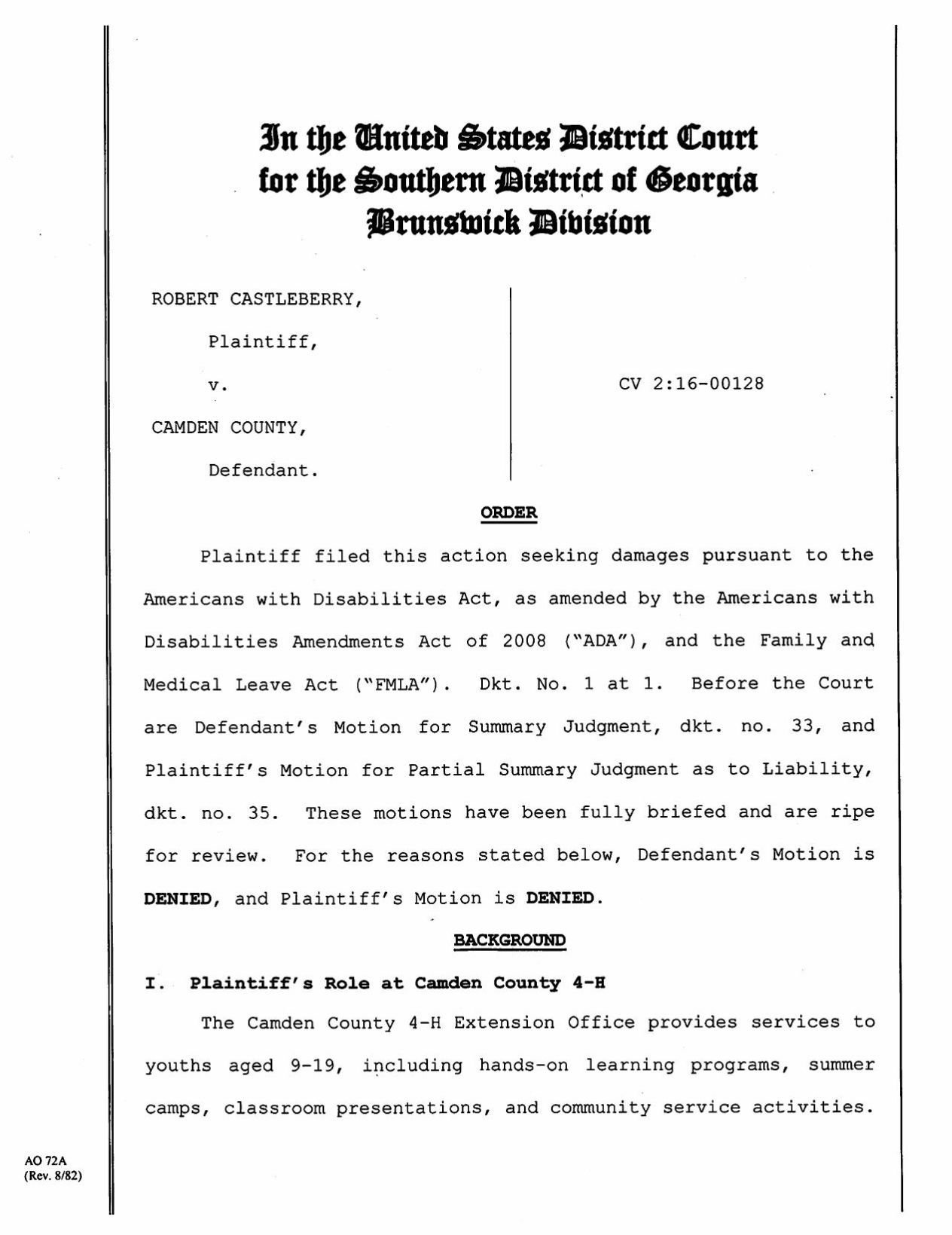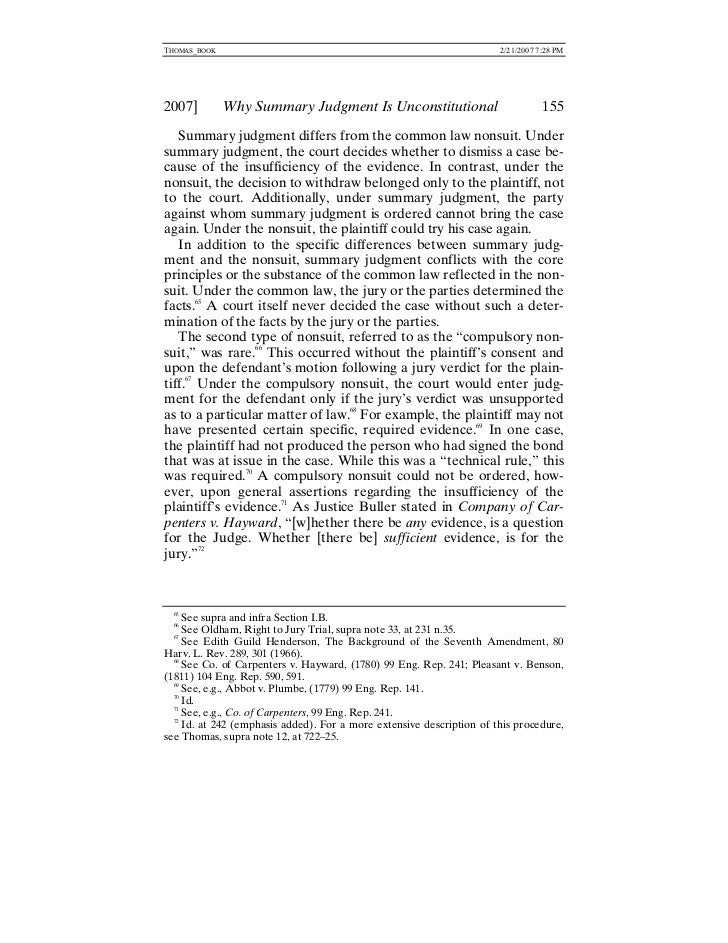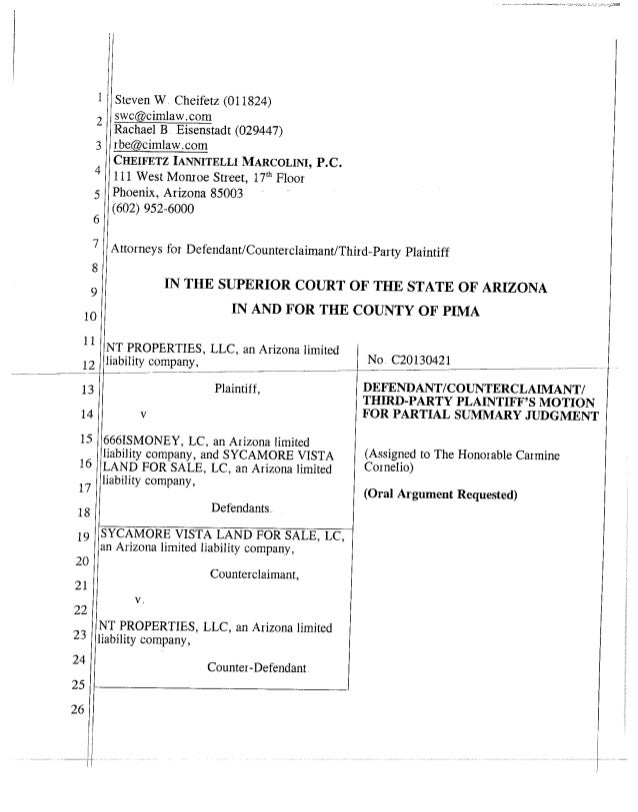
The lesson here is simple: Counsel should have a clear understanding of when the hearing on summary judgment has been scheduled regardless of whether they are the moving party or the nonmoving party because deadlines apply on both sides. Conversely, the nonmoving party must file its written opposition no later than either five days (if the response is served by mail) or two days (if the response is served by hand delivery or fax) prior to the hearing on the motion.

Generally, a party seeking summary judgment is required to give the nonmoving party at least 25 days’ notice prior to a hearing on the summary judgment motion.
SUMMARY JUDGMENT DEFINITION SERIES
Thus, even if the motion is well supported by the evidence, counsel would do well to avoid submitting a mountain of paper with the motion and expecting the court to review it all.īoth state and federal courts set timelines for filing dispositive motions, and it is critical that attorneys be aware of those timelines.įor example, in Florida state court (where the author generally practices), the Florida Rules of Civil Procedure set out a series of deadlines for summary judgment practice. Many lawyers and their clients, after losing summary judgment, are more likely to settle and judges, aware of this reality, are less inclined to entertain lengthy motions.
SUMMARY JUDGMENT DEFINITION TRIAL
In most circumstances, there is no interlocutory appeal and, accordingly, the trial court’s decision will likely not be reviewed until after trial occurs and a final judgment is entered. Although some judges may take the time to review as much of the material as possible, it would certainly be easier for the court simply to deny the motion rather than read the voluminous record submitted with the motion.Īnd what is the effect of a denial of summary judgment? The impact will be that you will have to either settle the case or go to trial. Imagine that you are a judge with 5,000 cases and a lawyer submits to you 2,000 pages of reading material in connection with a summary judgment motion. If the package that you submit to the court is three feet thick, there is a greater likelihood that your motion will be denied. One rule of thumb when it comes to summary judgment is, “The thicker the motion, the more likely it is to be denied.” In order to grant summary judgment, the typical trial court judge wants to be able to quickly understand the facts and see that those facts are supported by relevant documents, affidavits, or testimony. It is important to remember that lawyers cannot testify and that what the lawyer says during the summary judgment argument is not evidence on which the judge can rely to render a judgment. Thus, the party moving for summary judgment must carefully document all of the facts that support the motion. If you do not provide this type of information, your adversary will be able to legitimately claim that your motion is unsupported or based on hearsay. This means that you must submit relevant and admissible documents, sworn statements, and/or deposition transcript excerpts to support your motion. If successful at this, the plaintiff’s counsel will be able to streamline the case, eliminate the testimony of otherwise irrelevant witnesses, and save the client money.īefore a court will grant summary judgment, you must be able to submit factual evidence in admissible form. For instance, in cases where the defense pleads many affirmative defenses to the claims at issue, the plaintiff would be well advised to make an effort to “summary out” some of the affirmative defenses in order to narrow the issues before trial.

Partial summary judgment is a terrific way to narrow the issues in a case before trial. Summary judgment in these types of cases is more often granted because the court perceives that one party would be unable to present any material facts at trial that would result in a different outcome than that provided in the court’s summary judgment decision. Accordingly, judges carefully scrutinize whether the case at issue is appropriate for summary judgment.Ĭases in which you are more likely to receive summary judgment include uncontested foreclosure cases, cases involving the interpretation of a contract that is unambiguous, garden-variety business disputes, and collection matters. Remember that state and federal trial judges have someone looking over their shoulders at all times, namely, state and federal appellate courts. Judges are reluctant to grant summary judgment in these types of cases because of the likelihood of reversal. Examples of such cases include the typical negligence case, medical malpractice cases, and cases involving the interpretation of a contract where oral testimony is required to address an ambiguity in the contract. There are certain cases that do not lend themselves to summary judgment.

Where Summary Judgment Works and Where It Does Not


 0 kommentar(er)
0 kommentar(er)
